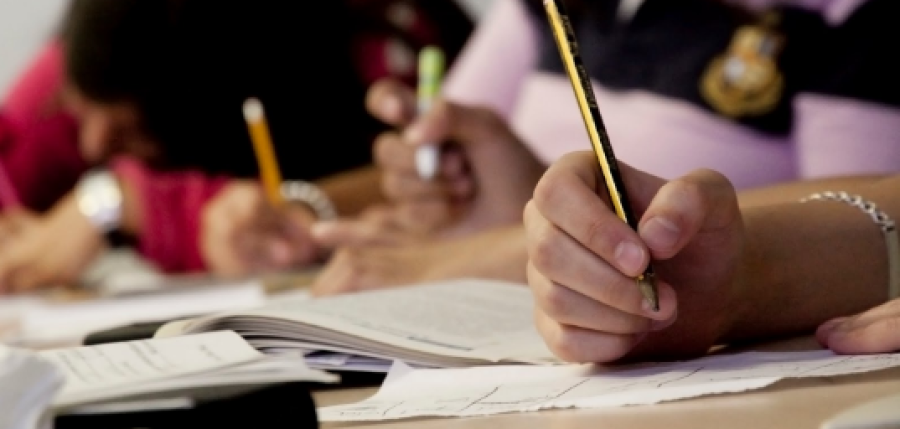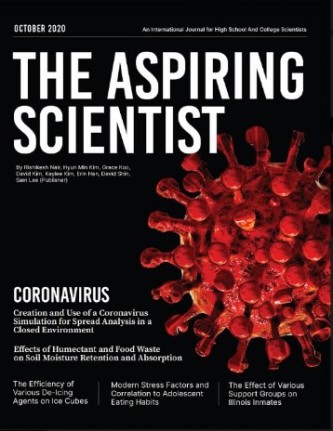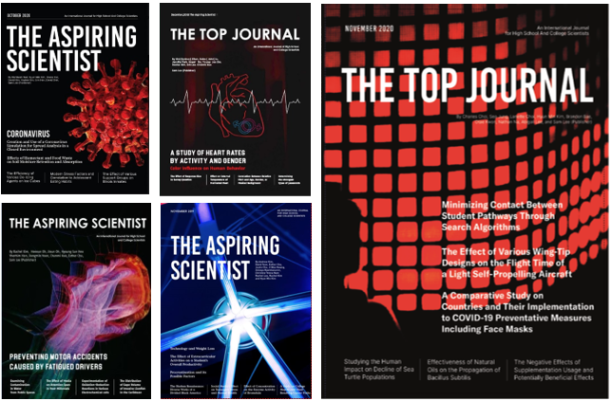
Research
Research Project Timeline
Below is the recommended timeline for completing the research project. Due to other possible time constraints it is ok if the project is slower in some areas and faster in others. This project may also be supplemented with a blog creation to further emphasize the process if desired.
Session 1 – Overview and introduction of the research project and program. Brainstorming techniques for choosing a topic and guidance on refining topic and testing procedure.
Session 2 – Continuing to refine topic and experiment procedure. Continue gathering background material for introduction and literature review.
Session 3 – Introduction and literature review should be mostly complete by now. Procedure should be finished and hypothesis/experimental testing should have begun or starting shortly.
Session 4 – Testing should be halfway to fully finished. Introduction, hypothesis, and materials/procedure should be finished and ready for editing. Preliminary results should also be entered in.
*There should be a time gap between this session and the next, as we will have to wait for the experiment to be completed.
Session 5 – Wrap up project. Experimentation should be finished and the results, along with any notes/observations, should be added into the paper. Editing and changes will be suggested and another review of the paper may occur before finalizing.
If student is planning to do a second project, this session can be used as a new topic brainstorming session as well.
The Aspiring Scientist
2020, Regardless of its political controversy, COVID-19 is currently an issue being dealt with globally.
Just as the correct allocation of resources and preventative measures are essential to this ongoing fight, conducting research to better understand the help the world is also crucial in saving lives and bettering global communities. Because of our interest and passion for research, We felt an urge to create change in the state of this current world with our own skills.
The Aspiring Scientist is a student-run initiative to promote the values of research for young students. It is an academic, professional, and peer-reviewed journal devoted to high school and college scientists who are interested in using research to benefit the world around them. Based in the United States, we include domestic and international students from Korea, China, and parts of Europe. The Top Journal aims to provide students with up-to-date research and to facilitate the widespread dissemination of their research, ideas, and expertise among individuals in the scientific community and for the public good.
Experienced mentors and professors provide students with an in-depth advice throughout the scientific writing and reviewing processes, while students develop critical thinking skills by advancing their knowledge in their respective scientific fields. The research subjects include project reports, case studies, and other work related to chemistry, biology, physical and life sciences, engineering, mathematics, psychology, sociology and more.
Most importantly, here at the Aspiring Youth Foundation, we encourage fellow students to take initiative in their learning. While close guidance is provided, we highly emphasize to each student the virtue of learning not for the sake of learning, but how they may use their knowledge for practical applications. Thus, our philosophy centralizes student empowerment and presenting one’s work with pride.
The Aspiring Scientist also provides an opportunity for students to present their research projects annually. Each year, we hold the Young Scientists Journal Conference, which brings together science enthusiasts and individuals working in related disciplines in order to foster conversations around their research. Based on the evaluation standards, a panel of experts will rigorously judge the students' research and the top-rated articles will be given an opportunity to be featured in The Top Journal. This way, our students are prepared for the rigorous research of academia along with other professional settings.
Through its dedication for ethical research, The Aspiring Scientist prepares emerging scientists and leaders for future careers in science, and it also provides them with a platform where they can explore their creativity and knowledge alongside readers in the real world. The Aspiring Scientist is committed to a scientific community that is open and accessible to all.
칼리지 플래닝 Aspiring Youth Foundation에서 publishing 하고 있는 사이언스 저널
The Aspiring Scientist, 저널은 미정부 허가난 저널이며 아마존에서 판매 되고 있다.
How to write a research proposal
These recommendations do not
guarantee a successful research application!
They are intended to help you conceptualize and prepare a research proposal,
giving the process structure and a timetable for you to develop. Good luck!
When applying for a research grant or a study scholarship, you are expected to
hand in a "detailed and precise description of study or research proposal as well as information on any previous study or research projects of particular relevance to a decision of
award."
The purpose of the proposal is to ensure that
- the candidates have done sufficient preliminary
reading/research
in the area of their interest - that they have thought about the issues involved and are able to provide more than a broad description of the topic which they are planning to research.
The proposal is not a fixed blueprint. One cannot predict one's findings beforehand or mechanically stick to an argument since the research will inevitably alter or even unseat one's initial expectations. There is no fixed formula for writing a proposal.
However, your challenge is to convince members of the scientific community that you
- have identified a scientific problem
- have a theoretical background and a methodical approach to solve the problem
- within a realistic time frame and at reasonable expenses.
With your research you will add a new aspect to the scientific discourse.
First, consult your advisor on length, layout (typeface, line spacing, font, etc.), format, as well as a table of contents and page numbers. Members of the selection committee may have to read a large number of research proposals so good construction and legibility of your proposal is to your advantage.
Title Page:
- Personal data (name, academic title, your position at your own
university, date of
birth, nationality, your contact information, institutional contact. - (Working) Title of your planned dissertation or research
report.
words in the title should be chosen with great care, and their association with one another must be carefully considered. While the title should be brief, it should be accurate, descriptive and comprehensive, clearly indicating the subject of the investigation.
In order to develop a clear title, you must also be clear about the focus of your research!
Strive for the title to be ten words or 60 characters: focus on or incorporate keywords that reference the classification of the research subject
- Indicate a realistic time frame toward project
completion,
followed by the name(s) of your supervisor(s), the university department where you hope to do your research and, if applicable, information about other academics with whom you plan to collaborate. - Refer to successfully funded projects to determine whether your topic fits with the granting organization's mission and to mimic their title/proposal structure
Abstract/summary statement of the research project:
This one page summary focuses on the research topic, its new, current and relevant aspects. Strive for clarity; your greatest challenge
might be narrowing the topic
Review of research literature
A short and precise overview about the current state of research that is immediately
connected with your research project.
- Reference the most important contributions of other scientists.
- Discuss the theoretical scope or the framework of ideas that will be used to back the research.
- Demonstrate that you are fully conversant with the ideas you are
dealing with and that you
grasp their methodological implications. - Indicate the open problem which then will be the motive for your project. State clearly how your research will contribute to the existing research.
Your history/preparation
Summarize the most important impact of your own work on the topic (if applicable).
Attach copies of your own publications that might be seen in relation to your research project.
Objective of the research project
Give a concise and clear outline of the academic (possibly also non-academic, e.g. social and political) objectives that you want to achieve
through your project. Your proposal
needs to show why the intended research is important and justifies the search effort. Here you outline the significance (theoretical or practical) or relevance
of the topic.
Such justification may either be of an empirical nature (you hope to add to, or extend
an existing body of knowledge) or of a theoretical nature (you hope to elucidate contentious
areas in a body of knowledge or to provide new conceptual insights into such
knowledge). All research is part of a larger scholarly enterprise and candidates should
be able to argue for the value and positioning of their work.
Outline the project
This is the central part of your research outline.
- Detail your research procedure within the given time.
- List sources and quality of evidence you will consult, the
analytical technique you will employ, and the timetable you will follow.
Depending on the topic, suitable research strategies should be defined to ensure
that enough and adequate empirical data will be gathered for a successful research project. - Describe the intended methods of data gathering, the controls you will introduce, the statistical methods to be used, the type of literature or documentary analysis to be followed, etc.
Consider your work to be a Work-in-Progress and allow yourself a flexible planning:
Stay ready to revise the proposal according to new insights and newly aroused questions
and keep on modifying the working hypothesis according to new insights while
formulating the proposal and the working hypothesis. Once you have a useful
working hypothesis, concentrate on pursuing the project within the limits of the topic.
Timetable
Develop a time table (if possible in table form), indicating the sequence of research phases and the time that you will probably need for
each phase. Take into account that at this stage, it can only be estimated, but make clear that you have an idea about the time span that will be needed for each step.
Selective research bibliography
List academic works mentioned in your research outline as well as other important works to which you will refer during your
research
Attachments:
List other documents attached to your proposal.
References, CV, etc.
Editing:
Once you have finished the conceptual work on your proposal, go through a careful
editing stage
Writing/presentation style:
- Verify that the title, the abstract and the content of your proposal clearly correspond to each other!
- Maintain a clear structure,
an intuitive navigational style throughout the document with headings and summaries, enabling the reader to quickly reference where they are for future commenting;
(Have a reader skim your document to verify) - Summarize significant issues and make no assumptions where possible.
- Keep a reasonable, clear, declarative writing style (active verbs!) throughout the document;
- Breakup the narrative with bulleted lists, visuals, etc.
demonstrating a command of abstract concepts and relationships
Use white space to highlight and emphasize important sections - Make sure your proposal does not contain any grammatical/spelling mistakes or typos; engage a proofreader;
- Request an experienced academic to proofread your proposal in order to ensure the proposal conforms to institutional and international academic standards.
Partially adapted with permission from
Olk, Dr. Harald. (October 2009). How to Write a Research Proposal. In Deutscher Akademischer Austauschdienst Dienst (DAAD). Retrieved January 28, 2011
Common rejection reasons *
The National Institute of Health (NIH) analyzed the reasons why over 700 research proposal applications were denied. Their findings as to the cause of rejection are worth reviewing:
- Nature of the Problem (18%)
- It is doubtful that new or useful information
will result from the project (14%). - The basic hypothesis is unsound (3.5%).
- The proposed research is scientifically premature due to the present inadequacy of supporting knowledge (0.6%).
- It is doubtful that new or useful information
- Approach to the Problem (38.9%)
- The research plan is nebulous, diffuse
and not presented in concrete detail (8.6%). - The planned research is not adequately controlled (3.7%).
- Greater care in planning is needed (25.2%).
1. The research plan has not been carefully designed (11.8%).
2. The proposed methods will not yield accurate results (8.8%).
3. The procedures to be used should be spelled out
in more detail (4.6%). - A more thorough statistical treatment is needed (0.7%).
- The proposed tests require more individual
subjects
than the number given (0.7%).
- The research plan is nebulous, diffuse
- Competence of the Investigators (38.2%)
- The applicants need to acquire greater familiarity with
the
pertinent literature (7.2%). - The problems to be investigated are more complex than
the
applicants realize (10.5%). - The applicants propose to enter an area of research for
which
they are not adequately trained (12.8%). - The principal investigator intends to give actual
responsibility
for the direction of a complex project to an inexperienced
co-investigator (0.9%). - The reviewers do not have sufficient confidence in the
applicants
to approve the present application, largely based on the past
efforts of the applicants (6.8%).
- The applicants need to acquire greater familiarity with
the
- Conditions of the Research Environment (4.8%)
- The investigators will be required to devote too much time
to
teaching or other non-research duties (0.9%). - Better liaison is needed with colleagues in collateral disciplines (0.4%).
- Requested expansion on continuation of a currently supported research project would result in failure to achieve the main goal of the work (3.5%).
- The investigators will be required to devote too much time
to
Based on the above analysis,
a carefully designed, well reasoned proposal will overcome these common pitfalls. It also represents and important credibility statement
about the investigator.
The Bureau of Occupational and Vocational Education comparable study.
Based on a sample of 353 research grant applications:
-- 18% forgot to number the pages.
-- 73% forgot to include a table of contents.
-- 81% had no abstract.
-- 92% failed to provide resumes of proposed consultants.
-- 25% had no resume for the principal investigator.
-- 66% included no plan for project evaluation.
-- 17% forgot to identify the project director by name.
-- 20% failed to list the objectives of the project.



